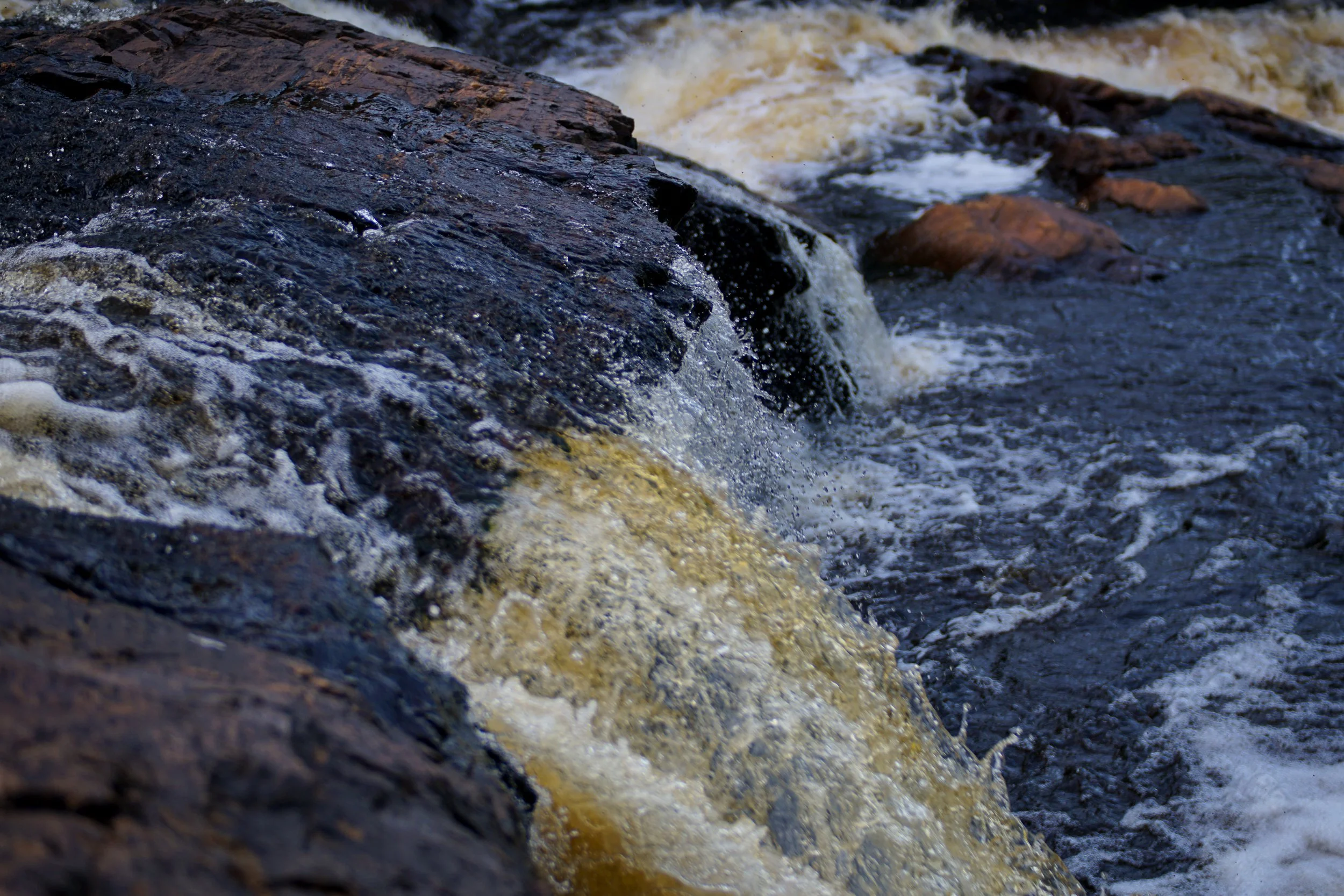We Are Not Powerless: Advocating For Clean Water and the Rights of Rivers
Canadian wildfire smoke obscuring the view northwest up the Delaware River from Interstate 295 (Scudder Falls Bridge) along the border of Ewing Township, New Jersey and Lower Makefield Township, Pennsylvania (Famartin, CC BY-SA 4.0 <https://creativecommons.org/licenses/by-sa/4.0>, via Wikimedia Commons)
Recently, wildfire smoke darkened our skies in northern New York, making being outside unpleasant to downright unhealthy. We experienced what it’s like when something fundamental that we take for granted, such as clean air, isn’t available. Here in the North Country, far from big cities, we expect clean air; yet we were powerless to do anything about the air pollution we were suddenly suffering.
Clean water is also fundamental to our well-being. We expect our waterways to be clean and healthy, but clean water is under threat from pollution.
The failure to protect water quality
According to the Environmental Integrity Project, a chronic failure to meet water quality standards means that “half the country’s assessed waterways do not support intended uses like aquatic life and drinking water.”
We cannot assume that federal and state regulations and agencies adequately protect our waterways and their ecosystems. Funding and staffing shortfalls hamper the ability of those agencies to do their job and enforce protections.
A June 2022 report by the EPA’s (Environmental Protection Agency) office of the inspector General found that “the EPA has not met statutory requirements for completing thorough inspections at all operating TSDFs” (a reference to Treatment, Storage and Disposal Facilities for hazardous wastes) and therefore “may not be protecting human health and the environment from hazardous waste contamination in the manner directed by Congress.”
In April of 2023 13 environmental groups filed a lawsuit against the EPA for failure to protect America’s waterways and public health as required by the Clean Water Act. There are many examples of this failure to protect. The Clean Water Act, for instance, requires the EPA to establish pollution limits based on available treatment methods and to review these every five years, yet 30 of the 49 industries covered by this provision have not updated their standards for over thirty years.
Another example concerns pollution from the fossil fuel industry: in 2021, eighty-one oil refineries discharged nearly 16 million pounds of nitrogen pollution into US waterways.
Local health effects
A local example is the Grasse River Superfund site in Massena, NY. The river and its sediment are contaminated with PCB’s, highly toxic chemicals linked to cancers, liver disease and a whole host of other health effects. The EPA settled on a plan that dredged and removed a 7.2 mile stretch of contaminated sediment along a near shore stretch of the Grasse and placed a cap on the river bottom channel rather than dredging it.
The St. Regis Mohawk Tribe, whose members have been most affected by this pollution, had advocated for the dredging and removal of the PCB’s rather than leaving them in place and capping. They also warned of the dangers of ice dams to the cap. In 2022, ice dam damage to the capped area did occur, releasing PCB’s exceeding the 500 ppm limit, once again posing substantial threat to human and environmental health.
Limited protections under threat
New York State’s Department of Environmental Conservation (DEC) has similar difficulty adequately protecting the environment. The NY State Comptroller’s 2021 report admits that “resources may not be adequate to fully cover required agency activities or maintain them over time,” resulting in “declines in certain types of inspecting and findings of environmental violations.”
Flawed and inadequate as they may be, those protections themselves are under threat, and we can’t assume they will always exist. For example, a recent Supreme Court decision significantly reduced the Environmental Protection Agency’s ability to protect water through the Clean Water Act.
Recognizing the Rights of Rivers
The good news is that unlike the helplessness we may have felt when experiencing the recent air pollution, we are not helpless with respect to protecting our water.
Image courtesy of Talking Wings.
We know that, historically, the recognition of rights is a critical step in granting and ensuring protections under the law, such as the Fourteenth Amendment. We can help to protect waterways in our communities by advocating for the passage of local laws that recognize the rights of waterways to exist and flourish. By codifying that entities of nature, such as rivers, have rights, citizens can then act on their behalf in a court of law if the river’s rights are violated. This gives communities the power to protect local waterways.
These sorts of Rights of Nature laws have been passed in a variety of places in the U.S. and other nations. In the North Country, the Town of Potsdam recently passed a resolution recognizing the rights of the Raquette River!
Water sustains life. It is demonstrably not being protected adequately by federal and state regulations and agencies. Before we wake up some morning, as we did recently to smoke-filled air, and find we can’t drink the water, fish or recreate on the waterways because they are too polluted, we can be proactive and follow Potsdam’s example. Recognizing rights, exercising responsibility - this is not helplessness. This is local democracy in action! To find out more about the Rights of Rivers visit https://nocoenvironment.org/rights.
Editor’s note: An earlier version of this article was published by North Country Now on June 13, 2023.


